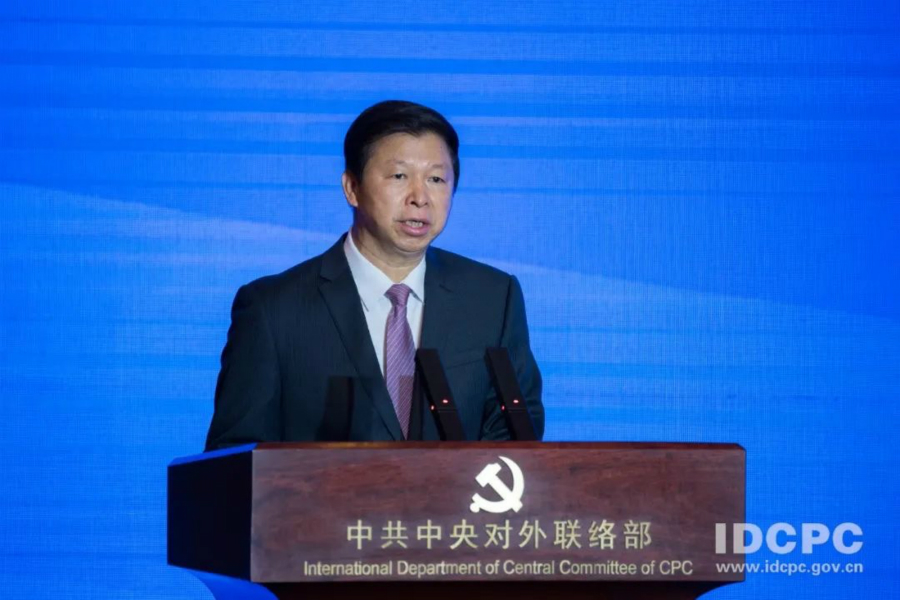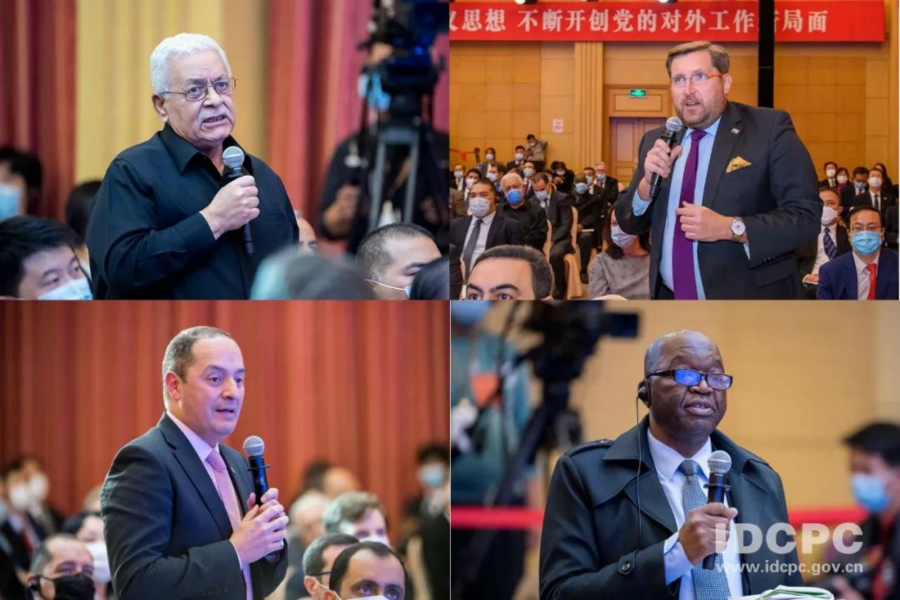Foreign diplomats briefed on China's five-year plan
A background briefing was held on November 9 in Beijing for foreign diplomatic envoys to China on the fifth plenary session of the 19th Communist Party of China (CPC) Central Committee.
Senior diplomats from over 100 countries, including more than 60 foreign ambassadors, attended the meeting, which was organized by the International Department of the CPC Central Committee (IDCPC).

Song Tao, Minister of the IDCPC, together with experts from the Central Financial and Economic Commission, the Chinese Academy of Social Sciences, and the Academy of Macroeconomic Research, briefed foreign diplomatic envoys on the CPC Central Committee's proposals for the formulation of the14th Five-Year Plan (2021-2025) for National Economic and Social Development and the Long-Range Objectives Through the Year 2035.
The experts stressed that the CPC Central Committee's fifth plenary session will not only provide a strong impetus for China's development but also inject greater confidence into the recovery of the world economy and provide more opportunities for the development of other countries.
Foreign diplomatic envoys attending the meeting said the blueprint drawn at the fifth plenary session for China's high-quality development will have a significant and positive influence on the world.

Bakhtiyor Saidov, Uzbek ambassador to China, was visibly impressed to learn that China had extensively solicited comments and suggestions from various sectors to formulate the 14th five-year plan and the long-range goals through 2035, a process that reflects the CPC's philosophy of always putting the people first.
Besides, buzz words like the high-quality development, "dual circulation," opening-up and poverty alleviation during the event caught the attention of the foreign diplomats.
"I am impressed by China's achievements in poverty alleviation," said Mohamed Elbadri, Egyptian ambassador to China, adding that China's efforts in improving healthcare and education have benefited every Chinese.
"China is an important part of the world economy and its development will draw more overseas investment and import," the Egyptian envoy said.
Socioeconomic measures put forward at the plenary session will continuously inject strong impetus into global economic recovery and growth, contribute to the UN Millennium Development Goals for poverty reduction, help tackle climate change, and offer a reference for developing countries in promoting social and economic progress, said Pham Sao Mai, Vietnamese ambassador to China.
Noting China's path to advancement, Uruguayan ambassador to China, Fernando Lugris, described Chinese and Uruguayan economies as complementary and it is important for Uruguay to better learn about China's new development strategies.
"I am convinced that China will make continuous efforts in improving people's living standards in the next five years," he said.
The foreign diplomats believed that technological innovation planned in the development proposals would break new ground in China's cooperation with other countries.
According to Croatian ambassador to China Dario Mihelin, China's high-level reform and wider opening-up will bring opportunities for the member states of the European Union, including Croatia, to forge cooperation with China in the fields of electronics and digital technologies.
"Technological innovation has played a leading role in China's development during the 13th Five-Year Plan period, and it will take a larger proportion in China's future economic development," said Carlos Miguel Pereira, Cuban ambassador to China, noting that the 14th Five-Year Plan is a manifestation of CPC's determination to lead China's development.
The briefing was broadcast live worldwide in six languages.
























